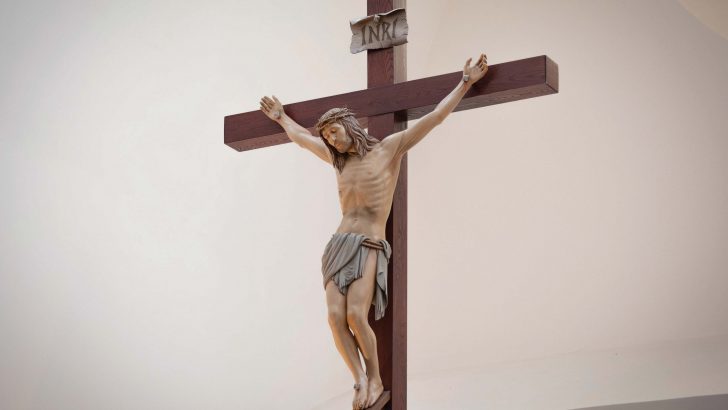Among people of faith, there is the notion that if you are person of deep faith you can easily renounce the things of this world, see the world for all its ephemerality, not cling to things, and die more peacefully. Not true. That is naïve, at least a lot of the time.
James Hillman writes: “We don’t let go easily of the throne, nor the drive that took us there.” While that is obviously true, of itself it speaks more of human ego than of faith. So let me try another line. The famed novelist and philosopher Iris Murdoch, confronts us with this fact: “A common soldier often dies without fear; but Jesus died afraid.”
This was borne out in the death of my own father. My dad was a man of deep faith to which his whole life gave witness. He died young, at 62, in faith – but he did not die easily. There was a deep sadness in him as he lay in palliative care waiting to bid his final goodbye to the rest of us. His sadness and its concomitant fear had nothing to do with fear of the next life, of what awaited him on the other side. His sadness and fear had to do with his giving up his place in this world, of dying to all the richness that is life. He was sad to be dying, to have to say goodbye to his wife, his family, his grandchildren, his friends, his faith community, his health, and all the things he enjoyed in this life. He died in faith, but did not die easily.
Scriptures
If we read the scriptures closely, we will see that this was also the case for Jesus. He too did not die easily, not because he feared what would meet him on the other side of death; however, like my dad, he deeply loved this life. We see that clearly in his struggle in the garden of Gethsemane. Facing his death, the scriptures tell us that he literally “sweated blood” and begged his Father that he might somehow escape from dying. We (naively) tend to think Jesus was afraid because of the physical pain that awaited him, the scourging and the nails; but that is not what the Gospels portray. He sweats blood in a garden, not in an arena. Archetypally, gardens are the place of love. It is Jesus the lover, not the athlete, who is sweating blood. His fear of death is predicated on love, love for life, this life.
The Jesuit theologian, Michael Buckley, wrote an essay within which he compared Jesus to Socrates, purely as a study in human excellence. The surprising thing is that, purely in terms of human excellence, Jesus seemed to come up short in comparison to Socrates. Here is a poignant quote from that essay: “Socrates went to his death with calmness and poise. He accepted the judgment of the court, discoursed on the alternatives suggested by death and on the dialectical indications of immortality, found no cause for fear, drank the poison, and died. Jesus – how much the contrary. Jesus was almost hysterical with terror and fear; ‘with loud cries and tears to him who was able to save him from death.’ He looked repeatedly to his friends for comfort and prayed for escape from death, and he found neither. … I once thought that this was because Socrates and Jesus suffered different deaths, the one so much more terrible than the other, the pain and agony of the cross so overshadowing the release of the hemlock. … Now I believe that Jesus was a more profoundly weak man than Socrates, more liable to physical pain and weariness, more sensitive to human rejection and contempt, more affected by love and hate. Socrates never wept over Athens.” Jesus was incurably human.
Journals
Soren Kierkegaard in his journals confessed that he shuddered at the thought of dying to the world, dying to ordinary life: “I love being a human being; I do not have the courage entirely to be spirit in that way. I still so much love to see the purely human delight that others take in life – something for which I have a better than ordinary eye, because I have a poet’s eye for it.”
Depression
One of the early signs of clinical depression is a loss of buoyancy in one’s life, a loss of any sense of personal delight, and the detachment that comes with that, namely, the easy capacity to let go of all the things that used to energise us and bring us meaning and joy. On the outside that can look good religiously. Look how wonderfully detached he is! However, saintliness should not be confused with depression, nor faith with emotional resignation.
If you are healthy spiritually, do not be surprised if, like Jesus, you sweat some blood in the face of death in any of its forms, particularly if you love your life – more so if you have a poet’s eye.


 Fr Ronald Rolheiser
Fr Ronald Rolheiser
